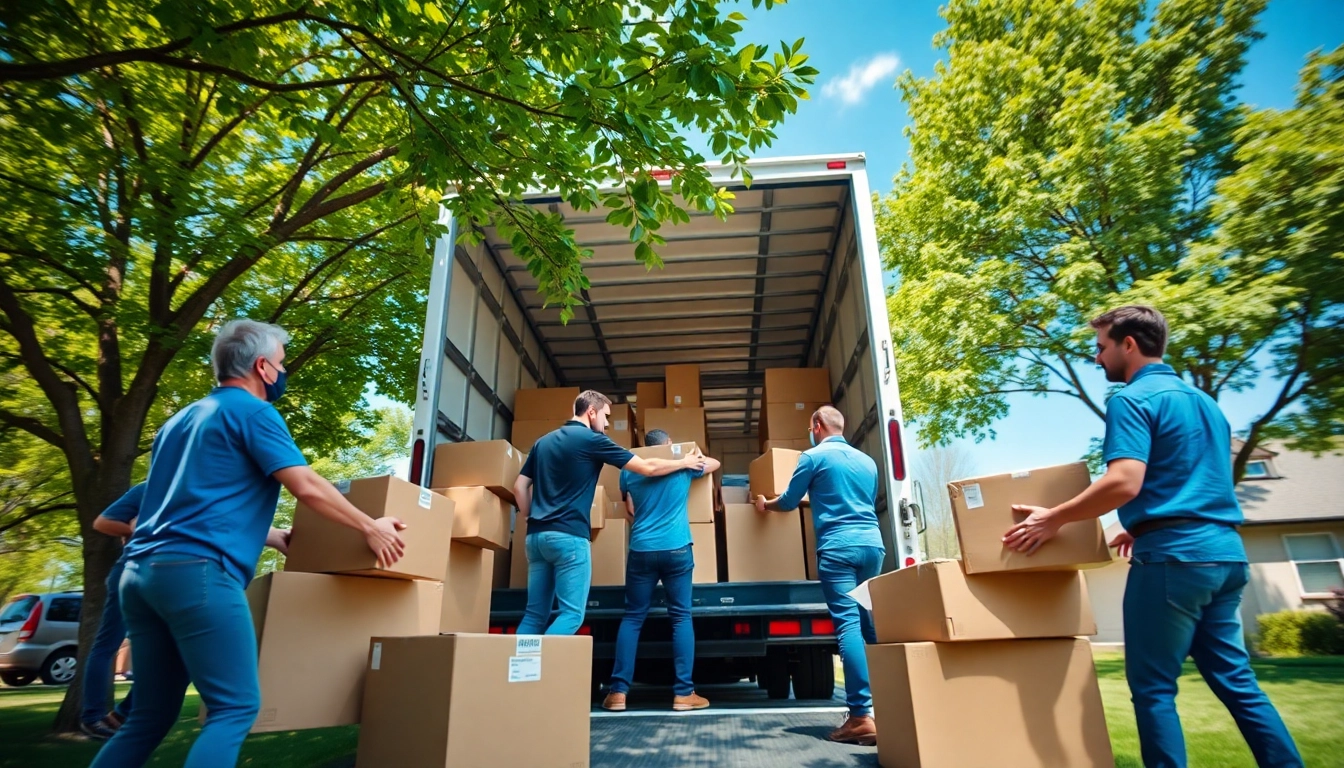Understanding House Moves
What Are House Moves?
House moves refer to the process of relocating from one residence to another. This can encompass various tasks, including packing belongings, hiring moving services, and transferring utility services. House moves are often associated with significant life changes, whether they involve upsizing, downsizing, or moving to a different city or state. Understanding what house moves entail can alleviate stress and enhance efficiency during the relocation process. For those looking at a seamless transition into a new environment, seeking professional help with house moves could be a pivotal decision.
The Importance of Planning for a House Move
Planning is crucial for a successful house move. A well-structured plan not only helps organize logistics but also reduces the potential for mishaps. The complexity of moving varies based on distance, the volume of possessions, and personal circumstances. Here are a few reasons why planning should be a priority:
- Time Management: Establishing a timeline for packing, notifying utilities, and setting moving dates can prevent last-minute chaos.
- Cost Efficiency: By planning ahead, you can compare moving companies, obtain quotes, and select the most cost-effective options.
- Stress Reduction: Knowing that each task has been organized allows you to focus on the transition rather than feeling overwhelmed.
Types of House Moves: Local vs. Long-Distance
House moves can be categorized based on distance:
- Local Moves: Typically involve moving within a 50-mile radius. These can often be accomplished in a single day, reducing costs related to transportation.
- Long-Distance Moves: Extend beyond 50 miles and may require logistical considerations like overnight accommodations and longer-duration moving services. When planning long-distance moves, it is vital to assess the moving company’s experience with such relocations.
Preparing for Your House Move
Creating a Moving Timeline
A moving timeline serves as a roadmap for your relocation efforts. It should start at least two months before the scheduled move date. Divide your timeline into several key phases:
- Eight Weeks Before Moving: Start decluttering, gathering packing materials, and researching moving companies.
- Four Weeks Before Moving: Finalize the moving company, begin packing non-essential items, and notify service providers of your move.
- One Week Before Moving: Pack essentials, document valuable items, and confirm the moving arrangements.
- Moving Day: Ensure that everything gets loaded onto the truck efficiently and safely, leaving a checklist to ensure nothing is forgotten.
Sorting and Decluttering Before a Move
Sorting and decluttering are essential steps in the moving process. Not only does it lighten your load, but it also provides an opportunity to evaluate what you truly need. Here are some strategies to effectively declutter:
- The Four-Box Method: Label four boxes as “Keep,” “Donate,” “Sell,” and “Trash.” This method can help streamline decisions.
- One Room at a Time: Focus on one space to avoid feeling overwhelmed. Tackling smaller areas allows for a more manageable approach.
- Digital Decluttering: Don’t forget to sort through digital files and accounts, especially if they contain information you no longer need.
How to Choose the Right Moving Company
Selecting a trustworthy moving company is crucial for ensuring a smooth transition. Consider the following factors:
- Research: Look into various companies, checking reviews, ratings, and credentials. Reliable platforms like the Better Business Bureau can provide insight.
- Get Estimates: Obtain written estimates from several companies to compare prices and services. Ensure all charges are explained, and inquire about hidden fees.
- Ask the Right Questions: Don’t hesitate to ask about their experience, the insurance they provide, and their cancellation policies.
Executing a Successful House Move
Packing Tips for a House Move
Packing can be daunting, but implementing effective strategies can help. Here are some packing tips to consider:
- Use Quality Packing Materials: Invest in sturdy boxes, packing tape, and protective materials like bubble wrap to avoid damage during the move.
- Label Everything: Clearly labeling each box with its contents and destination room facilitates a more organized unpacking process.
- Pack Strategically: Place heavier items on the bottom of boxes and lighter ones on top, and use towels or linens to fill gaps and provide cushioning.
Maximizing Efficiency on Moving Day
On the day of the move, efficiency is key to managing time effectively. Consider the following tactics:
- Assemble a Moving Day Team: Having friends or family assist can speed up the process significantly.
- Have a Plan for Pets and Children: Arrange for someone to take care of them to avoid distractions and ensure everyone’s safety.
- Stay Organized: Keep important documents, keys, and essentials in a designated box or bag to avoid last-minute scrambling.
Ensuring Safety During the Move
Safety should be a priority during any move. Here are some recommendations to ensure everyone remains safe:
- Lift Properly: Use your legs for lifting, not your back. Ensure you have a firm grip on the items being lifted, using two or more people for larger items.
- Clear Pathways: Maintain clear walkways to prevent tripping hazards. Remove obstacles or clutter before the move begins.
- Stay Hydrated and Take Breaks: Moving can be physically taxing. Encourage your team to take regular breaks, especially in hot weather.
Post-Move Considerations
Unpacking Strategies for a Smooth Transition
Unpacking is just as important as packing. Efficient unpacking strategies can help you settle into your new home more comfortably:
- Prioritize Essentials: Unpack items you use regularly first. This includes kitchen items, bathroom necessities, and basic furniture.
- Room by Room: Focus on unpacking one room at a time. This method helps maintain focus and reduces feeling overwhelmed.
- Organize While Unpacking: Use this opportunity to organize your new space. Consider where items will be stored as you unpack boxes.
Settling into Your New Home
Transitioning into a new home goes beyond unpacking. Take these steps to help you feel at home faster:
- Explore the Area: Familiarize yourself with local amenities, parks, and restaurants. Connecting with your new neighborhood can significantly enhance your moving experience.
- Meet the Neighbors: Introducing yourself to neighbors can create a sense of community, as well as provide you useful local recommendations.
- Personalize Your Space: Decorate your home in a manner that reflects your personality. This could include hanging artwork or rearranging furniture to make it feel more welcoming.
Common Moving Issues and How to Resolve Them
Even with careful planning, moving can come with unexpected challenges. Here’s how to handle some common issues:
- Damaged Items: If items are damaged during the move, document the damage immediately and contact your moving company if they offer insurance coverage.
- Delayed Arrival of Moving Truck: Stay calm and in contact with the moving company. Utilize the extra time for additional unpacking or organization tasks.
- Emotional Stress: Don’t underestimate the emotional toll a move can take. Allow yourself time to adjust and seek support from loved ones if needed.
Conclusion: Making Your House Move a Positive Experience
Recapping Essential House Move Tips
In summary, a house move can be simplified with adequate preparation and strategic execution. Key strategies include starting early, decluttering your belongings, choosing the right moving company, and ensuring safety throughout the process.
Encouraging a Stress-Free Moving Experience
A well-executed house move can pave the way for a smooth transition and a positive experience in your new home. Focus on maintaining organization, embracing flexibility, and keeping a calm mindset throughout the process.
Sharing Your Moving Story for Community Insights
Your moving experiences can provide valuable insights to others. Whether you faced significant challenges or found effective techniques, sharing your journey can assist others in navigating their own house moves more easily and effectively.



